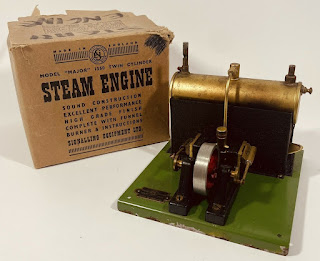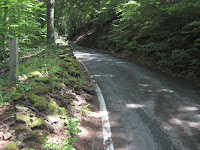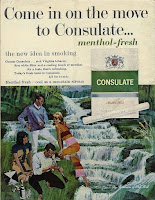We cleaned and brushed his boots and shoes, black and brown, with Cherry Blossom polish from a round tin with cherries on the lid, and Wren’s waterproof dubbin with a little bird.
We replaced brake blocks and pumped tyres, and mended punctures by immersing the inner tubes in bowls of water to see the bubbles, marking with chalk, and sticking on puncture patches with stringy rubber solution. I learnt about tyre levers and tubular (box) spanners. We polished the wheels and handlebars with rags (old underpants were good) and mustard coloured chrome cleaner, transforming dirty grey to silver shine. We smeared on vaseline for protection from the weather – a magnet for yet more grime.
We soaked the chains in trays of petrol to remove the oily grit, and then disposed of the petrol by setting it alight. Dad once just tipped it on the garden but had to stop after Grandpa came for tea one day and complained: “This lettuce tastes of petrol.”
We cleaned Dad’s pipes, scraping out the burnt black ash with a gadget barbed like a miniature medieval mace, and soaking up the evil-smelling gunge with fluffy pipe-cleaners.
Then it was time for nicer smells and sounds: the matchsticks that rattled in their flat green and red box with a picture of a swan on the top, the firework hiss and smell of sulphur when he struck one, and the clouds of sweet St. Bruno smoke. He would pack the pipe bowl with tobacco from a black and white metal tin (with new tins, you had to pull a rubber vacuum seal from the bottom before you could open the lid), put the stem between his teeth, suck a flame down into the bowl, and blow smoke from the side of his mouth with a satisfied expression and popping ‘p’ sound.
“Can I have a puff?” I begged. “Let me have a puff”. I was only four.
“Oh all right,” said Dad reluctantly. He held the stem of the pipe near my mouth. I was instantly sick.
And then there were the fun jobs – playtime. We had a model steam engine, the “steam boiler”, which drove a flywheel through dual pistons, exactly like the one pictured. It had a brass water tank heated by a methylated spirit burner that slid underneath. Dad loved to take it out of its oily cardboard box and fire it up on the back room table. Once steam was up, it could be set in motion. The flywheel revolved at a fair old pace, puffing and rattling, spitting out a lethal mixture of hot oil and boiling water. It had a screeching whistle and a safety valve that blew like a railway engine when the pressure got high.
It was important the pistons were always oiled and that the water tank did not run dry. The spirit burner needed topping up frequently. The smell of methylated spirit mixed with hot emulsified oil is unforgettable. Once, we spilled methylated spirit on the table and it caught light. I watched fascinated as a lucent blue pool of flame spread slowly across the surface, Dad flapping it frantically with his hands, looking panicky.
A move to another house brought a whole new set of Thursday afternoon jobs, sanding and painting skirting-boards and staining wooden floors around the edges of carpet squares before fitted carpets became the norm.
We painted the garden shed banana yellow. It leaked, so we mended the roof. I sat up there with Dad, ‘helping’ him tack down new sheets of roofing felt and painting it with hot black tar. Dad heated the tar to boiling point in an old paint pot on the kitchen gas cooker. Then, holding it with just a wooden cane through the handle, carried it bubbling and the smouldering tar acoss the kitchen floor, across the garden, and up on a rickety stepladder and on to the shed roof. It must have been a thoroughly hazardous operation. There were splashes of black tar on the yellow paint for years.
But there was still room for play-jobs.
We found some old lead piping in the shed. Dad melted it on the kitchen cooker in an empty tin can, and then, holding it with pliers, poured the molten metal into toothpaste tins which had originally contained hard, flat, tablets of ‘dentifrice’ wrapped in red cellophane. You rubbed it with a wet toothbrush to form a lather. The empty tins were just right for moulding make-believe medals – possibly something Dad had himself made in this own childhood. After pouring the lead, the medals were dropped into a bowl of water and sizzled as they cooled. The embossed ‘Gibbs’ lettering transferred perfectly to the moulded medals. No one knew about lead poisoning then.
Perhaps it was just as well Mum went to Grandma’s on Thursdays.
‘Dad’s Thursday Helper’ would have continued for me until I started school, but Dad was then able to do it all over again with my brother.























